
Extreme violence: investigate, rescue, judge. Syria, Rwanda, Democratic Republic of Congo
Laëtitia Atlani-Duault, Jean-Hervé Bradol & Marc Le Pape
Laëtitia Atlani-Duault is a French social anthropologist. She is a Research Professor at IRD - CEPED (Sorbonne Paris Cité University, Paris V René Descartes), and is the current Director of the Collège d’Études Mondiales (CEM) at the Fondation Maison des sciences de l’homme (FMSH) in Paris, France.
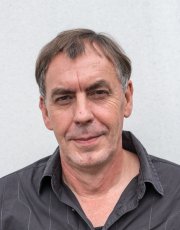
Medical doctor, specialized in tropical medicine, emergency medicine and epidemiology. In 1989 he went on mission with Médecins sans Frontières for the first time, and undertook long-term missions in Uganda, Somalia and Thailand. He returned to the Paris headquarters in 1994 as a programs director. Between 1996 and 1998, he served as the director of communications, and later as director of operations until May 2000 when he was elected president of the French section of Médecins sans Frontières. He was re-elected in May 2003 and in May 2006. From 2000 to 2008, he was a member of the International Council of MSF and a member of the Board of MSF USA. He is the co-editor of "Medical innovations in humanitarian situations" (MSF, 2009) and Humanitarian Aid, Genocide and Mass Killings: Médecins Sans Frontiéres, The Rwandan Experience, 1982–97 (Manchester University Press, 2017).
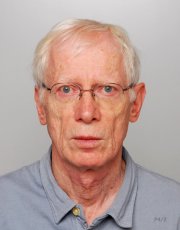
Marc Le Pape has been a researcher at the CNRS and then at the EHESS. He is currently a member of the scientific committee of the CRASH. Formerly with the CNRS, Marc Le Pape is currently a researcher at the l'Ehess (Centre d'études africaines). He has carried out research in Algeria, Côte d'Ivoire and Central Africa. His recent studies have focused on the Great Lakes region in Africa. He has co-directed several publications: Côte d'Ivoire, l'année terrible 1999-2000 (2003), Crises extrêmes (2006) et dans le cadre de MSF : Une guerre contre les civils. Réflexions sur les pratiques humanitaires au Congo-Brazzaville, 1998-2000 (2001) and Génocide et crimes de masse. L'expérience rwandaise de MSF 1982-1997 (2016).
Theaters of war, genocide, mass crimes, Syria, Rwanda and the Democratic Republic of Congo are at the heart of the international symposium organized by the platform L’humanitaire dans la globalisation of the Fondation Maison des sciences de l’homme (FMSH) and the Centre de Réflexion sur l'Action et les Savoirs Humanitaires (CRASH) of Médecins Sans Frontières. This symposium is part of the commemoration by these two institutions of the 25 years of the genocide of Rwandan Tutsis.
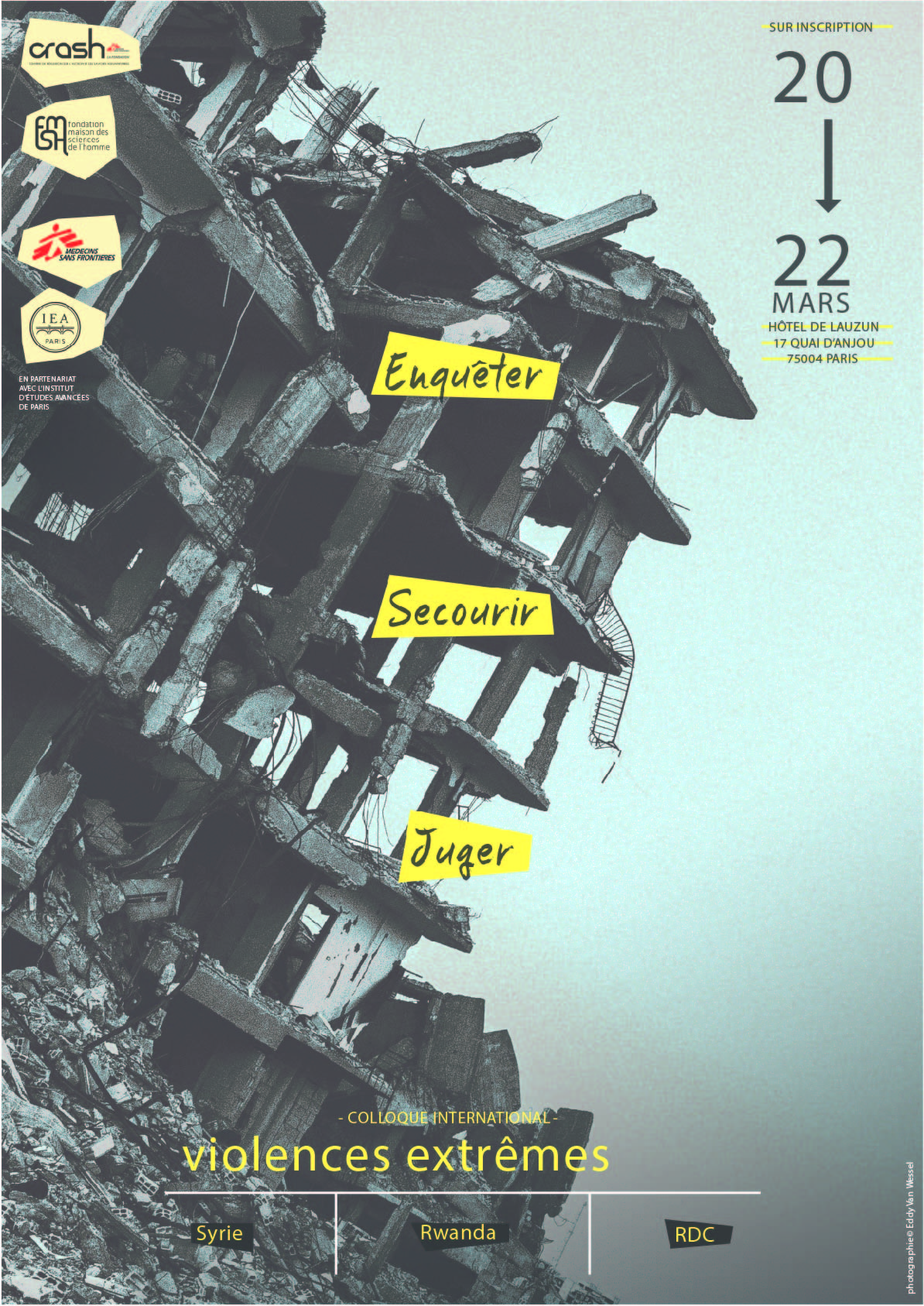
For three days, social scientists, humanitarian practitioners and defenders of human rights will draw on their field experiences in these contexts of extreme violence to analyze their practices and present their research. This reflection on the practices will allow exploring the logics of collaboration between these three categories of actors.
The last part of the symposium will be devoted to a round table on the judiciarisation of extreme violence as a source of opportunities but also of constraints and risks for researchers and practitioners. The aim will be to question the good distance to have with the judicial system in particular when they are called to deposit or to protect their sources.
Simultaneous French-English translation is planned.
Practical information
International Symposium | Extreme Violence: investigate, rescue, judge on 20, 21 & 22 March 2019
Hôtel de Lauzun | 17 quai d'Anjou 75004 Paris | Place graciously provided by the Institut d’études avancées de Paris
Online registration on the IAE website
Programme
Mercredi 20 Mars
14:00 Ouverture
Michel Wieviorka, directeur d’études à l’EHESS, président du directoire de la FMSH
14:15 Introduction
Jean-Hervé Bradol, médecin, directeur d’études au CRASH, MSF et Laëtitia Atlani-Duault, directrice de recherche au CEPED (IRD, INSERM, Université Paris V), et directrice du Collège d’études mondiales de la FMSH
15:00 - 18:30 Syrie
Discutant : Fabrice Weissman, directeur d’études au CRASH, MSF
- 15:00 « Enquêter dans la Syrie en guerre » Gilles Dorronsoro, professeur de sciences politiques à l’Université Paris I Panthéon Sorbonne, Adam Baczko et Arthur Quesnay, post-doctorants associés à l’Université Paris I Panthéon Sorbonne : projet ERC, « Social Dynamics of Civil Wars »
- 16:00 « Les pratiques humanitaires de terrain à l’épreuve du conflit syrien » Hakim Khaldi, chargé d’études à MSF
- 16:30 « Targeting health infrastructure in Syria: a military tactic or a collateral damage? » Abdulkarim Ekzayez, médecin, chercheur associé à Research for Health in Conflict (R4HC), King’s College
- 17:00 « Danger, advocacy and accuracy: witnessing by local medical humanitarian organisations in the Syrian conflict » Sophie Roborgh, chercheuse associée au Humanitarian and Conflict Response Institute, University of Manchester
- 17:30 Discussion
Jeudi 21 Mars
9:00 - 17:30 Rwanda
Discutant : Nicolas Mariot, directeur de recherche au CNRS
- 9:15 Ouverture de la journée Claudine Vidal, directrice de recherche émérite au CNRS, membre du comité scientifique du CRASH, MSF
- 9:30 « Expérience de témoin survivant du génocide et de témoin de témoins dès 1994 » Pacifique Kabalisa, président du Centre pour la prévention des crimes contre l’humanité (CPCH)
- 10:00 « Twenty years after Leave None to Tell the Story: what do we now know about the Rwandan genocide? » Timothy Longman, professeur de sciences politiques, Boston University
- 10:30 « The limits of the genocide label » Scott Straus, professeur de sciences politiques, University of Wisconsin-Madison
- 11:00 Discussion
- 13:30 « Les enquêtes de Lee Ann Fujii » Claudine Vidal, directrice de recherche émérite au CNRS, membre du comité scientifique du CRASH, MSF
- 14:00 « Winning the battle of ideas: extremist vs moderates ideologies in Rwanda’s genocide » Omar McDoom, professeur assistant à la London School of Economics and Political Sciences
- 14:45 « Inside Rwanda’s Gacaca Courts. Seeking Justice after Genocide » Bert Ingelaere, professeur assistant à l’Université d’Anvers
- 15:15 « Les procédures judiciaires engagées par des juridictions nationales hors Rwanda envers des ressortissants rwandais » André Guichaoua, professeur de sociologie à l’Université Paris I Panthéon Sorbonne
- 15:45 Synthèse Nicolas Mariot, directeur de recherche au CNRS
- 16:15 Discussion
Vendredi 22 Mars
9:00 - 13:15 République démocratique du Congo
Discutant : Yann Mens, journaliste, membre du conseil d’administration de MSF
- 9:30 « Enquêter pour le Conseil de sécurité des Nations Unies » Emilie Serralta, consultante indépendante
- 10:00 « Les carrières de Bosco Ntaganda, homme de guerre, du Rwanda à la CPI-ICC » Marc Le Pape, sociologue, CNRS, membre du comité scientifique du CRASH, MSF
- 10:45 « Comprendre la violence contre les civils perpétrée par des acteurs armés dans l’est de la RDC : types, modalités et logiques » Judith Verweijen, lecturer, University of Sussex
- 11:15 « Négocier l’accès humanitaire dans le Nord Kivu : les dilemmes, tensions et compromis quotidiens dans un contexte de violences cycliques » Myfanwy James, doctorante, University of Oxford
- 11:45 « Produire un discours journalistique sur la guerre : une expérience congolaise » Justine Brabant, journaliste et chercheuse indépendante
- 12:15 Discussion
14:30 - 16:30 Table ronde : Enquêter, secourir, juger
Chercheurs et humanitaires en contexte de génocide et de crimes de masse face au défi croissant de la judiciarisation
14:30 Introduction
Laëtitia Atlani-Duault, directrice de recherche au CEPED (IRD, INSERM, Université Paris V), et directrice du Collège d’études mondiales de la FMSH
Discutantes : Audrey Ceschia, rédactrice en chef du Lancet Public Health, et Laëtitia Atlani-Duault
- Bruno Cotte, président honoraire de la chambre criminelle de la Cour de cassation, ancien président de la chambre de première instance à la cour pénale internationale
- Catherine Marchi-Uhel, cheffe du Mécanisme international, impartial et indépendant de l’ONU sur les violations du droit international commises en Syrie
- Rony Brauman, médecin, directeur de recherche au CRASH, MSF.
- Rudi Coninx, directeur du Humanitarian Policy & Guidance Unit, Emergency Operations Department, à l’Organisation mondiale de la Santé
16:30-17:00 Conclusion du colloque
Jean-Pierre Dozon, directeur d’études à l’EHESS, vice-président du directoire de la FMSH
To cite this content :
Laëtitia Atlani-Duault, Jean-Hervé Bradol, Marc Le Pape, Claudine Vidal, “Extreme violence: investigate, rescue, judge. Syria, Rwanda, Democratic Republic of Congo”, 20 mars 2019, URL : https://msf-crash.org/en/conferences-debates/extreme-violence-investigate-rescue-judge-syria-rwanda-democratic-republic
If you would like to comment on this article, you can find us on social media or contact us here:
ContributePast events
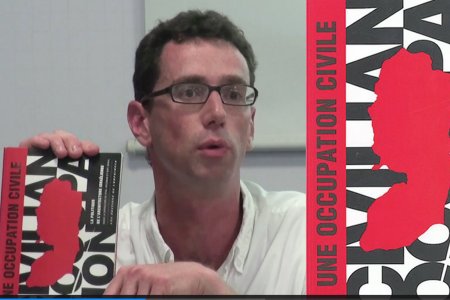 Conference
Conference
Eyal Weizman - Forensic Architecture at work
02/15/2016 - 07:00 PM 09:30 PM Michaël NeumanEyal Weizman, the founder of « Forensic Architecture » at the Goldsmiths College (University of London) came to present the project as well as a number of his works at a MSF - Crash conference organised at MSF.
 Conference
Conference
The polio eradication campaign put to test
02/04/2014 - 01:30 PM 07:30 PM Claire MagoneThe polio eradication campaign has indeniably and remarkably succeeded in tumbling down the number of polio cases worldwide. But difficulties currently faced by the Programme -pockets of social resistance in several countries, reinfection of some countries, outbreak of epidemics associated with strains of vaccine-derived polio viruses- indeed challenge one of the main assumptions underlying the objective of the eradication itself : the full compliance of an entire population to a public health program.
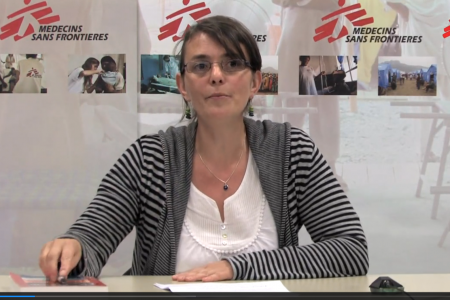 Conference
Conference
Living a Natural Disaster
11/03/2010 - 07:00 PM 09:00 PM Sandrine RevetPeople wandering through the rubble in Haiti, arms outstretched begging for help amid the floods in Pakistan: the media coverage of disasters invariably features helpless victims, overwhelmed by the disaster, waiting to be helped...
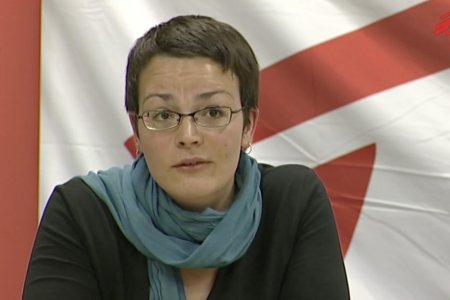 Lena Mucha
Conference
Lena Mucha
Conference
From their point of view
03/10/2009 - 07:00 PM 09:30 PM Caroline Abu-sadaThe reasons why we are accepted, tolerated or sometimes rejected in the contexts where we work are often obscure. Caroline Abu-Sada and her team of sociology student shed some light on these issues.
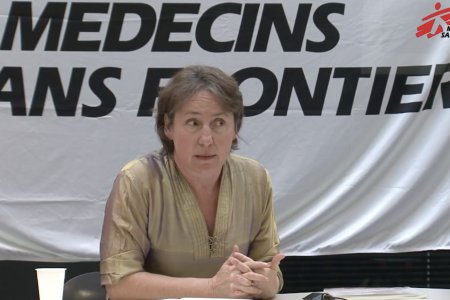 Jacob Zocherman
Conference
Jacob Zocherman
Conference
Grounds for divorce ? MSF and the international criminal court
04/08/2009 - 08:30 PM 10:30 PM Françoise Bouchet-SaulnierIn 1998 MSF decided to support the creation of the International Criminal Court. 10 years later MSF stated that it ‘would not cooperate and would not transmit any information to the ICC'. How can we explain this change of position?
Période
Newsletter
Subscribe to our newsletter to stay informed about our latest publications. Interested in a specific author or thematic? Subscribe to our email alerts.
